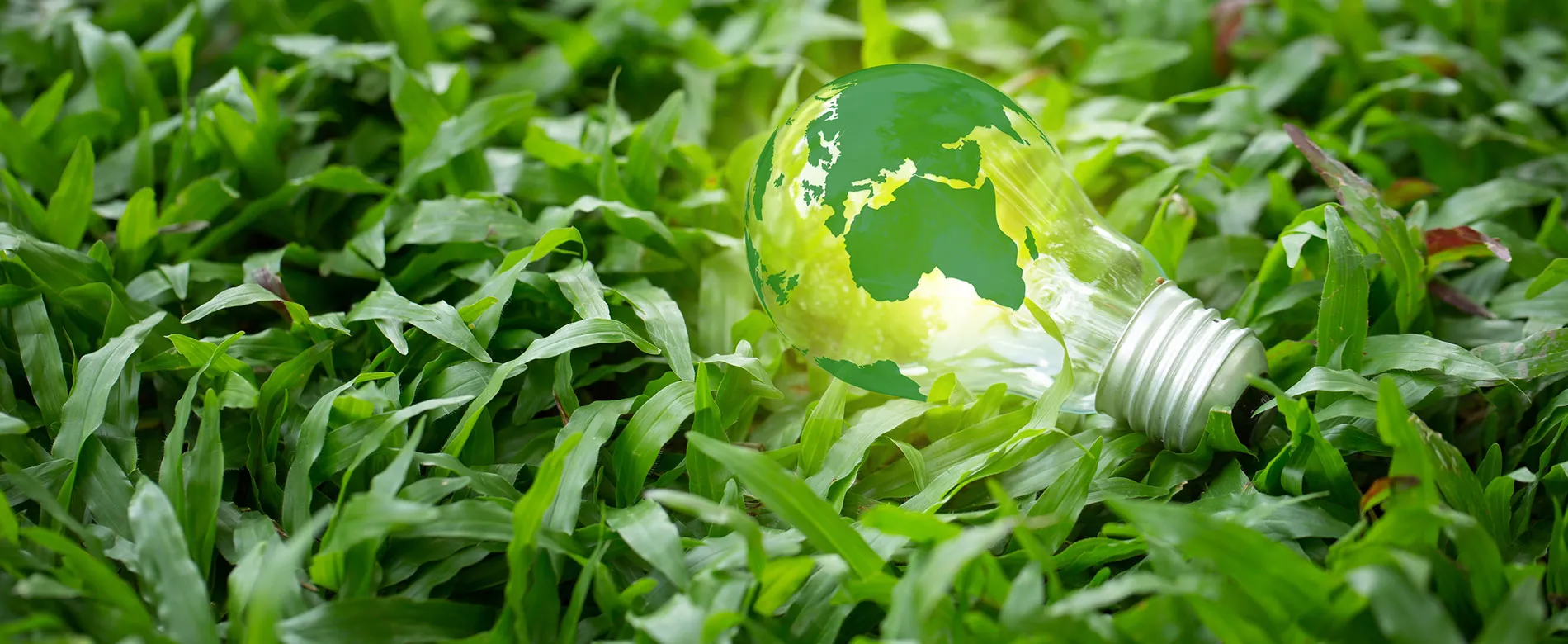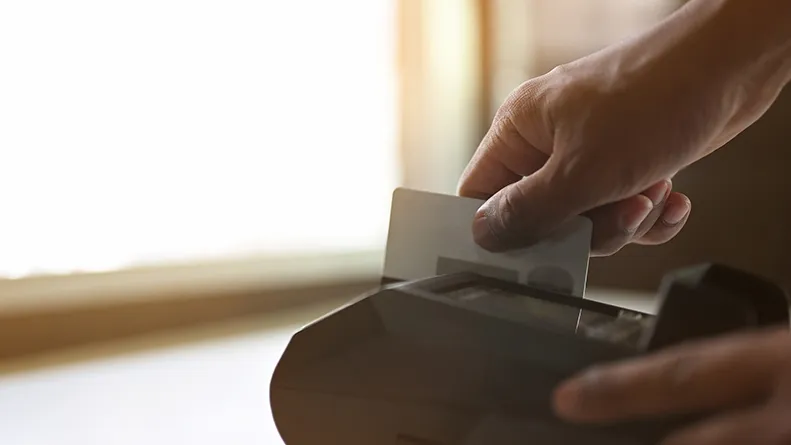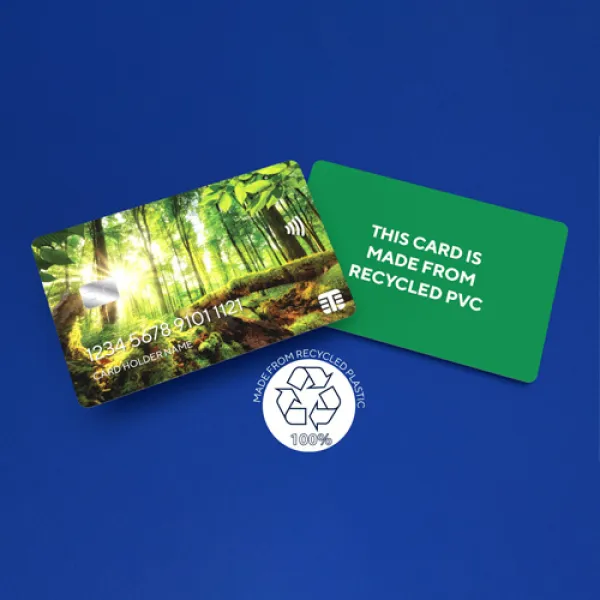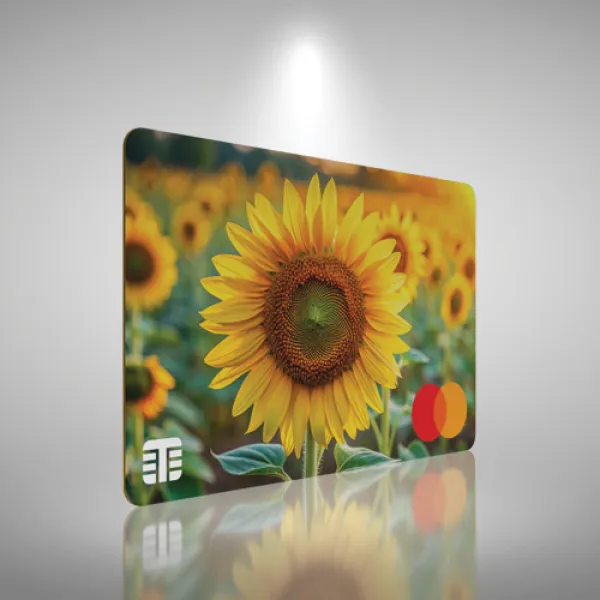Pioneering a sustainable future: Embracing rPVC and paperboard cards
The financial landscape is undergoing a profound transformation, driven by a growing awareness of environmental responsibility and sustainability.
Financial institutions, long seen as stalwarts of tradition, are now at the forefront of a critical transformation. One significant shift is the migration from traditional virgin PVC to recycled PVC (rPVC) and the introduction of paperboard payment cards.
This shift not only promises to redefine the environmental footprint of the sector but also presents significant business advantages.
PVC cards: The current landscape and challenges
Traditionally, payment cards have been made from virgin PVC due to its durability and flexibility. However, the production and disposal of PVC pose significant environmental challenges.
Plastic pollution is a growing global concern, with up to 12 million tons of plastic entering our oceans annually, according to Greenpeace UK. Although small, cards produced using virgin PVC add up to a significant environmental burden considering the billions of cards issued worldwide each year.
In contrast, rPVC is made from recycled plastic material and offers a more compelling alternative with the same durability and longevity as virgin while also being significantly more sustainable.
By reusing plastic already in circulation, rPVC reduces the need for new plastic production, thereby cutting down on fossil fuel consumption and greenhouse gas emissions.
This recycling process also diverts plastic waste from landfills and oceans, contributing to cleaner ecosystems and a healthier planet. It lowers the demand for virgin plastic, decreases greenhouse gas emissions, and minimises plastic waste that may otherwise be sent to landfill.
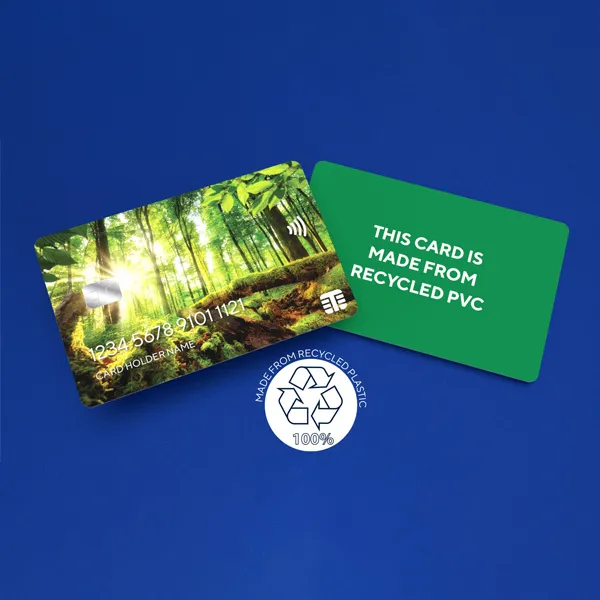
Paperboard alternative to plastic pre-paid cards
Paperboard pre-paid cards are a recent introduction and are ideal for short-term cards such as compensation cards or open loop gift cards. They present an innovative leap forward as a sustainable alternative to traditionally plastic pre-paid cards.
Made from sustainably sourced paperboard, these cards are biodegradable and recyclable, significantly minimising their environmental impact. This is particularly true when the production of the paperboard cards also aligns with broader sustainable forestry and manufacturing practices, such as using waste materials as bio-fuel, ensuring a minimal carbon footprint from production to disposal.
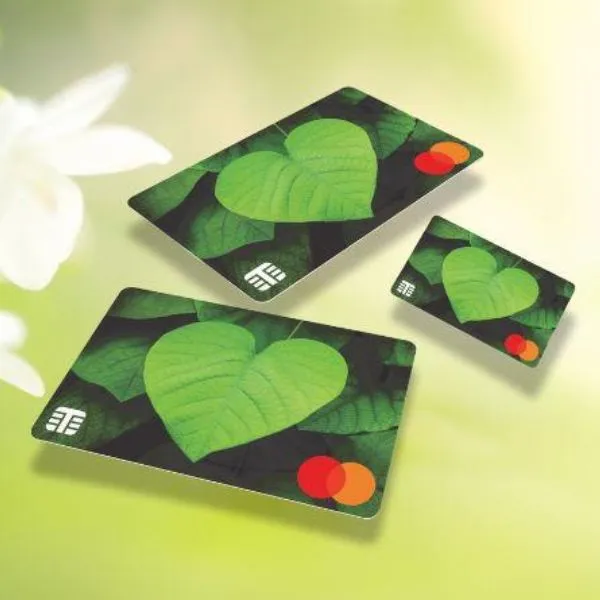
A momentous shift to virgin PVC alternatives
The shift towards rPVC and paperboard payment cards is gaining increasing momentum. This change is driven by both consumer demand and regulatory pressures. Customers today are more environmentally conscious and often prefer to engage with brands that prioritise sustainability. Additionally, governments worldwide are implementing stricter regulations on plastic use and waste management, pushing industries to seek greener alternatives.
Looking ahead, we can expect a broader adoption of sustainable materials being used to produce payment cards. As technology continues to evolve, the cost gap between traditional PVC and eco-friendly alternatives will narrow even more, making rPVC and paperboard the new standards in payment card production.
A case for change
From a business perspective, the shift to rPVC and paperboard payment cards offers several advantages. Firstly, it aligns with the growing consumer preference for sustainable products, enhancing brand loyalty and reputation.
Financial institutions that adopt these materials can differentiate themselves in a competitive market by demonstrating their commitment to environmental stewardship.
Secondly, the use of recycled and biodegradable materials can lead to cost savings in the long run. While the initial investment may be higher, the reduction in raw material costs and waste management expenses can offset these costs over time.
Environmentally, the benefits are substantial. The use of rPVC reduces the reliance on fossil fuels and decreases greenhouse gas emissions associated with PVC production.
It also diverts plastic waste from landfills, contributing to a circular economy. Paperboard pre-paid cards, being biodegradable, eliminate the problem of plastic pollution altogether, ensuring that the end-of-life disposal of cards has minimal environmental impact.
A call to action
As leaders in the payments sector, it is our responsibility to drive this change. Financial institutions must prioritise the adoption of sustainable materials and actively seek partnerships with innovative suppliers. This transition should be accompanied by transparent communication to customers about the environmental benefits of rPVC and paperboard cards, fostering greater acceptance and demand.
The migration from virgin PVC to rPVC and paperboard payment cards represents a significant opportunity for the payments sector to contribute to a more sustainable future.
By embracing these materials, financial institutions can not only mitigate their environmental impact but also strengthen their market position and meet the evolving expectations of their customers. The time to act is now, and the benefits for both business and the planet are undeniable.

